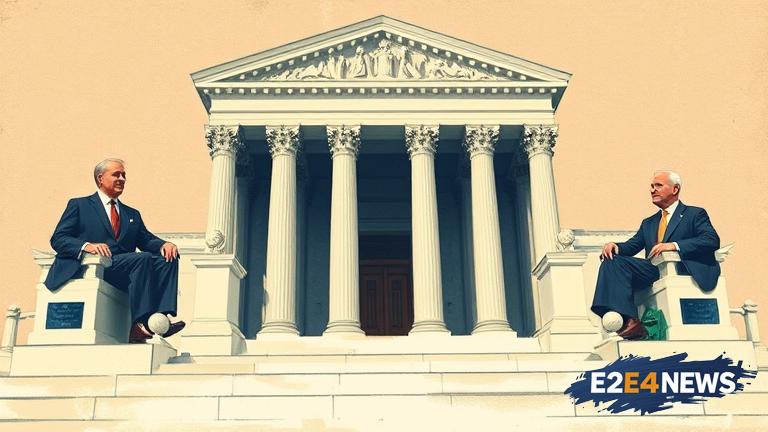The history of presidential appointments to the Supreme Court is a long and complex one, with each president playing a significant role in shaping the nation’s highest court. From the early days of the republic to the present, presidents have used their appointment power to influence the Court’s decisions and direction. The first president, George Washington, set the tone for future appointments, choosing justices who shared his vision for the country. Over time, presidents have continued to use their appointments to shape the Court, often with significant consequences. Some appointments have been highly controversial, such as the appointment of Roger Taney, who went on to write the infamous Dred Scott decision. Others have been widely praised, such as the appointment of Thurgood Marshall, who became a champion of civil rights. The process of appointing justices has also evolved over time, with the Senate playing an increasingly important role in the confirmation process. Despite the challenges and controversies, the presidential appointment power remains a crucial aspect of the Supreme Court’s composition. In recent years, the Court has become increasingly polarized, with justices often dividing along ideological lines. This polarization has led to increased scrutiny of the appointment process, with many calling for reforms to reduce the influence of politics on the Court. Despite these challenges, the Supreme Court remains a vital institution in American democracy, and the president’s role in shaping its composition will continue to be a subject of great importance. The impact of presidential appointments can be seen in the many landmark decisions handed down by the Court, from Brown v. Board of Education to Roe v. Wade. Each of these decisions has had a profound impact on American society, and the justices who made them possible were appointed by presidents who shared their vision for the country. As the nation continues to evolve and grow, the president’s role in shaping the Supreme Court will remain a crucial aspect of American history. The appointment power is a significant tool for presidents to leave a lasting legacy, and its impact will be felt for generations to come. The Supreme Court’s decisions have far-reaching consequences, affecting the lives of millions of Americans and shaping the course of the nation’s history. The president’s appointments have also reflected the changing values and priorities of the nation, from the early emphasis on property rights to the modern focus on individual liberties. As the Court continues to grapple with the complex issues of the 21st century, the president’s appointments will play a critical role in shaping its decisions and direction.
